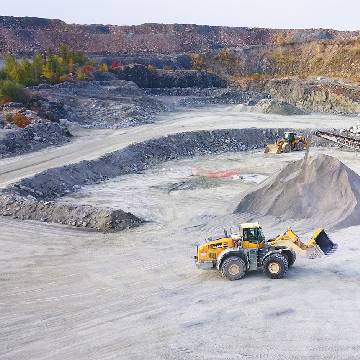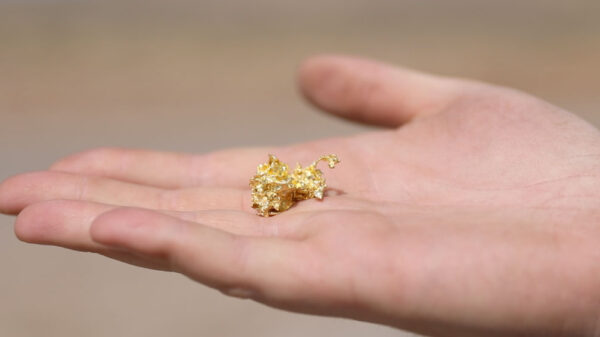An Ontario First Nation is taking legal action against McEwen Mining (NYSE: MUX) (TSE: MUX) for environmental damages owing to a mining tailings facility at its Black Fox Mine.
The Apitipi Anicinapek Nation (AAN) said that McEwen has failed to meet its obligations to the community set out under an impact benefit agreement (IBA) with a mine waste tailings facility. This facility also poses a health and environmental risk, and the company has not made compensation payments to the community.
AAN, formerly Wahgoshig First Nation, is near Matheson, east of Timmins. McEwen’s Black Fox Mine is also located outside Matheson.
The mine initially produced from 1997 to 2001 before operators suspended operations. They recommissioned it in 2009, running it as an open-pit operation from May 2009 to September 2015 while transitioning to underground mining in October 2011. Underground operations continued until 2021.
The community claims Black Fox lies within its traditional territory.
“Our lawsuit says that McEwen Mining Inc. is in violation of its commitments to Apitipi Anicinapek Nation by refusing to make annual compensation payments of shares to AAN, for over a decade, and by causing preventable environmental harm by allowing tailings leakages that harm fish and wildlife and pose risks to human and ecological health,” said Chief June Black.
“The case says that the agreement between AAN and McEwen by which we consented to this project on the basis of the conditions and accommodation measures in it, is being breached by McEwen in these ways. They have known this for some time and refused or failed to fix these problems. They have driven us to have to go to court.”
Read more: Equinox Gold acquires Calibre Mining for $2.6B
Read more: Calibre Mining beats updated gold production guidance with 242,487 ounces
Impact benefit agreements establish social and economic commitments
AAN stated that it consented to the mine’s construction in 2011 when Brigus Gold owned it. Primero Mining purchased the mine, mill, and adjoining properties in 2014. McEwen acquired the asset from Primero in 2017.
Impact benefit agreements establish social and economic commitments between industry and individual communities for natural resource and infrastructure projects. These confidential, legally binding agreements define how communities will participate in resource operations within their traditional territory.
The agreements outline environmental sustainability, revenue sharing, training and other measures. They also introduce business opportunities while ensuring environmental safeguards and health and safety measures.
AAN stated that the IBA assures the community that the company will take all efforts to ensure the environment is protected. It also lays out specifics for prevention, mitigation and compensation in the event of an accident. The agreement also provides benefits that more than offset any harms.

A still image of the Fox complex. Image via McEwen Mining.
McEwen says it did not sign agreement
AAN contends that McEwen has known about tailings leakage issues since 2021. Furthermore, it’s known about the non-payment of share compensation since at least 2022. The community claims the company has taken no action to address these issues.
McEwen maintains it is not subject the Black Fox IBA because it did not sign the agreement.
AAN stated that the province determined the tailings facility poses an environmental hazard following a recent investigation by the Ministry of Environment, Conservation, and Parks.
In its news release, AAN reported that the ministry found environmental violations under section 30(1) of the Ontario Water Resources Act and sections 14(1) and 93(1) of the Environmental Protection Act. These violations involve historical and ongoing seepage of “polluting material” from the mine’s tailings facility, which may harm water quality in the Reid and North Driftwood Creeks and impact downstream aquatic life.
McEwen mining responded, claiming that it is “fully committed to the protection of the environment at the Stock Mill.”
The company does not believe there is cause for concern about environmental harm from the operation of the tailings facility.
Read more: Calibre Mining beats gold guidance for 2024 in Nevada and Nicaragua
Read more: High grades in Nicaragua expected to raise Calibre Mining’s mineral resource
McEwen contends this has economic basis, not environmental
McEwen said that it operates the facility under an approval issued by the Ontario Ministry of Environment, Conservation, and Parks (MECP). The facility also undergoes frequent inspections by various provincial and federal ministries, including those responsible for fisheries, natural resources, the environment, and mining.
It also emphasized that it adheres to stringent requirements for effluent treatment. This includes surface and groundwater quality monitoring and biological monitoring, and reports results to the MECP.
The company proposed additional monitoring measures and continues to work with authorities to ensure it meets its obligations to all stakeholders as part of a recent closure plan amendment.
The problem, McEwen says, involves a dispute over the IBA’s requirement to make annual payments of 25,000 Brigus common shares to AAN. This commitment predates McEwen’s acquisition of Fox. Brigus also ceased to exist after Primero bought it in 2013, which further complicated the issue.
Furthermore, McEwen indicates its shares and Brigus shares are not interchangeable on a 1-to-1 basis. The company also denies responsibility for shares that Primero failed to deliver during its ownership. However, McEwen is open to a dialogue with AAN and hopes to find an amicable solution.
.














